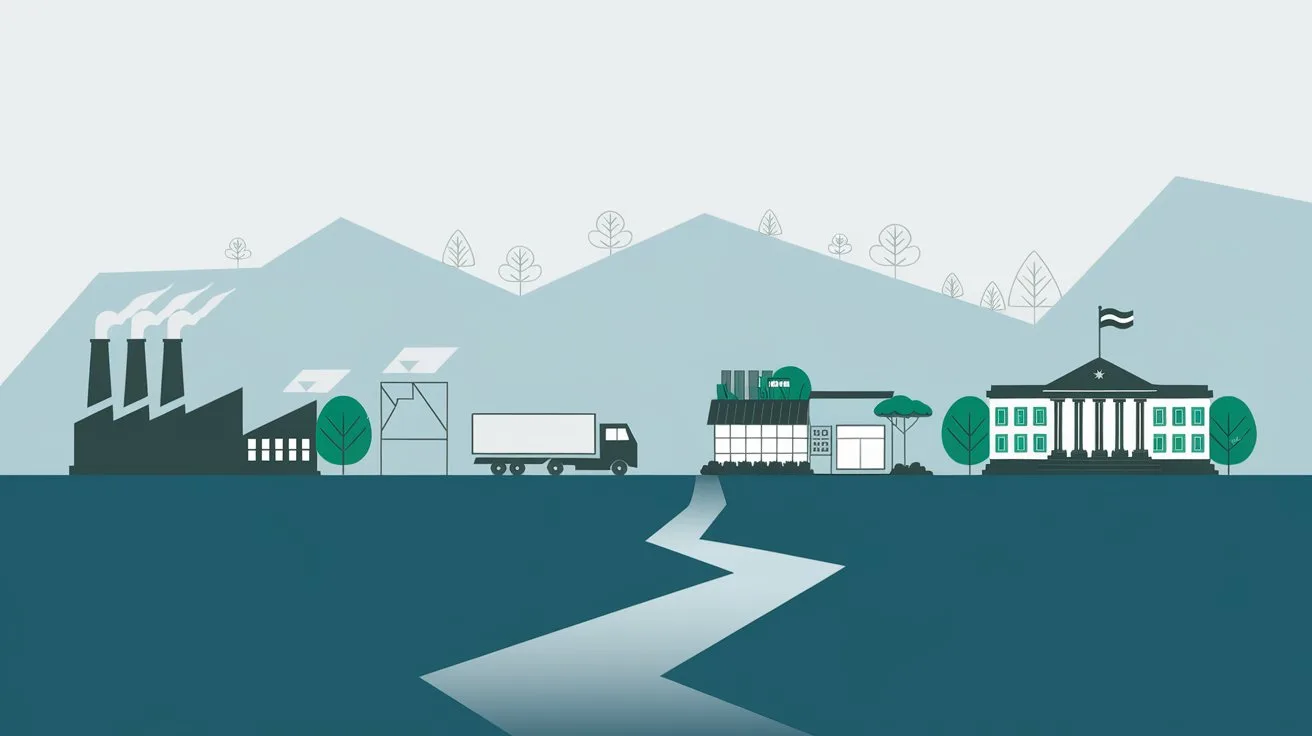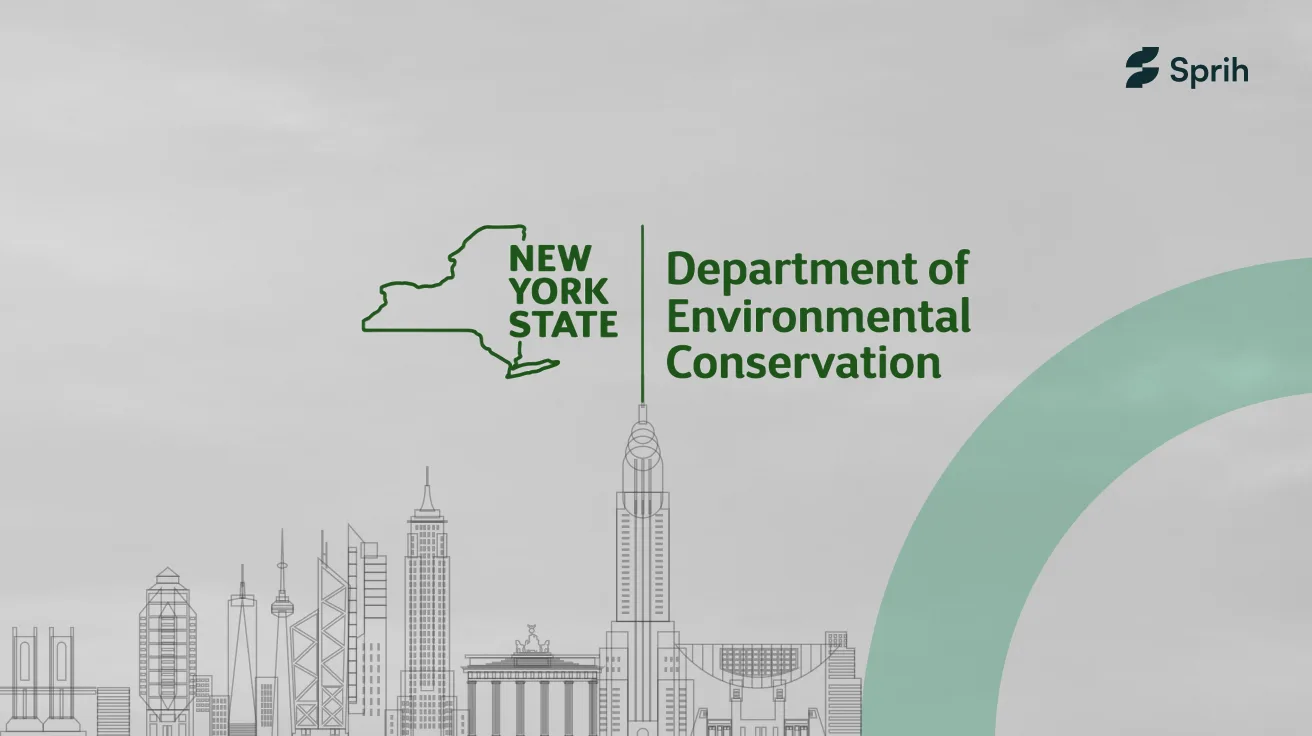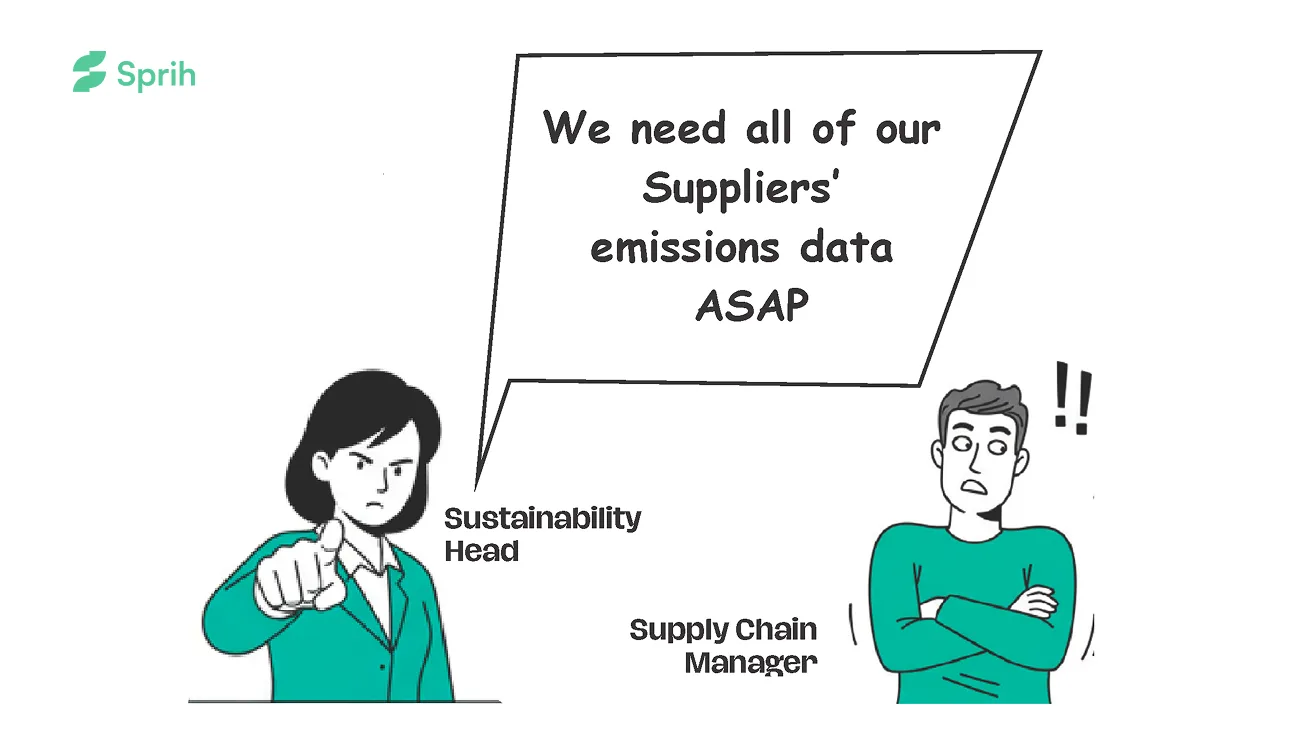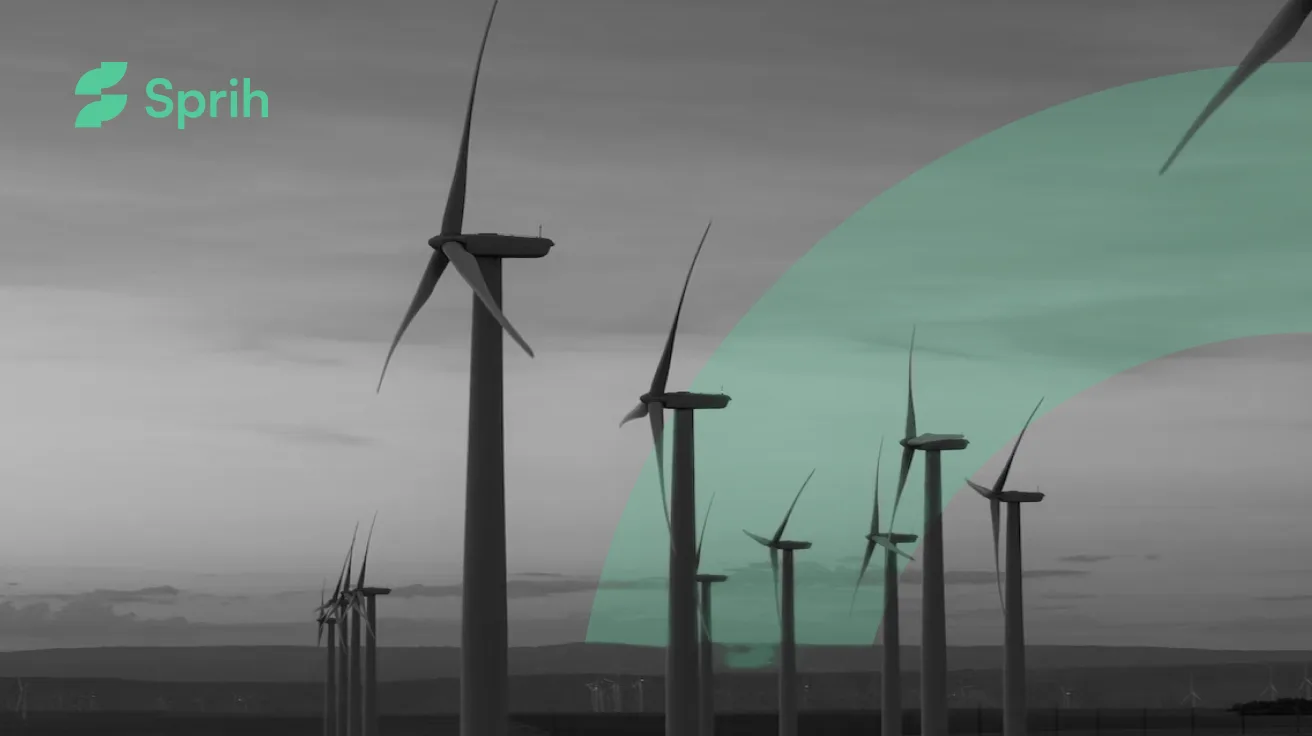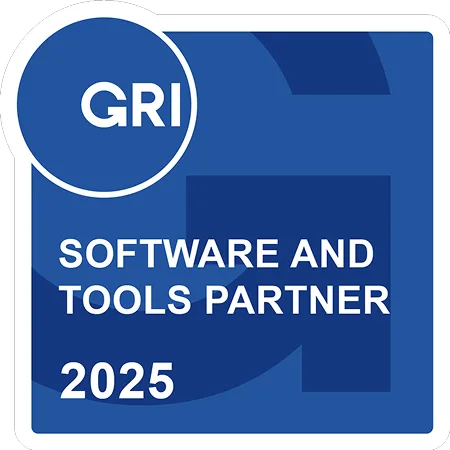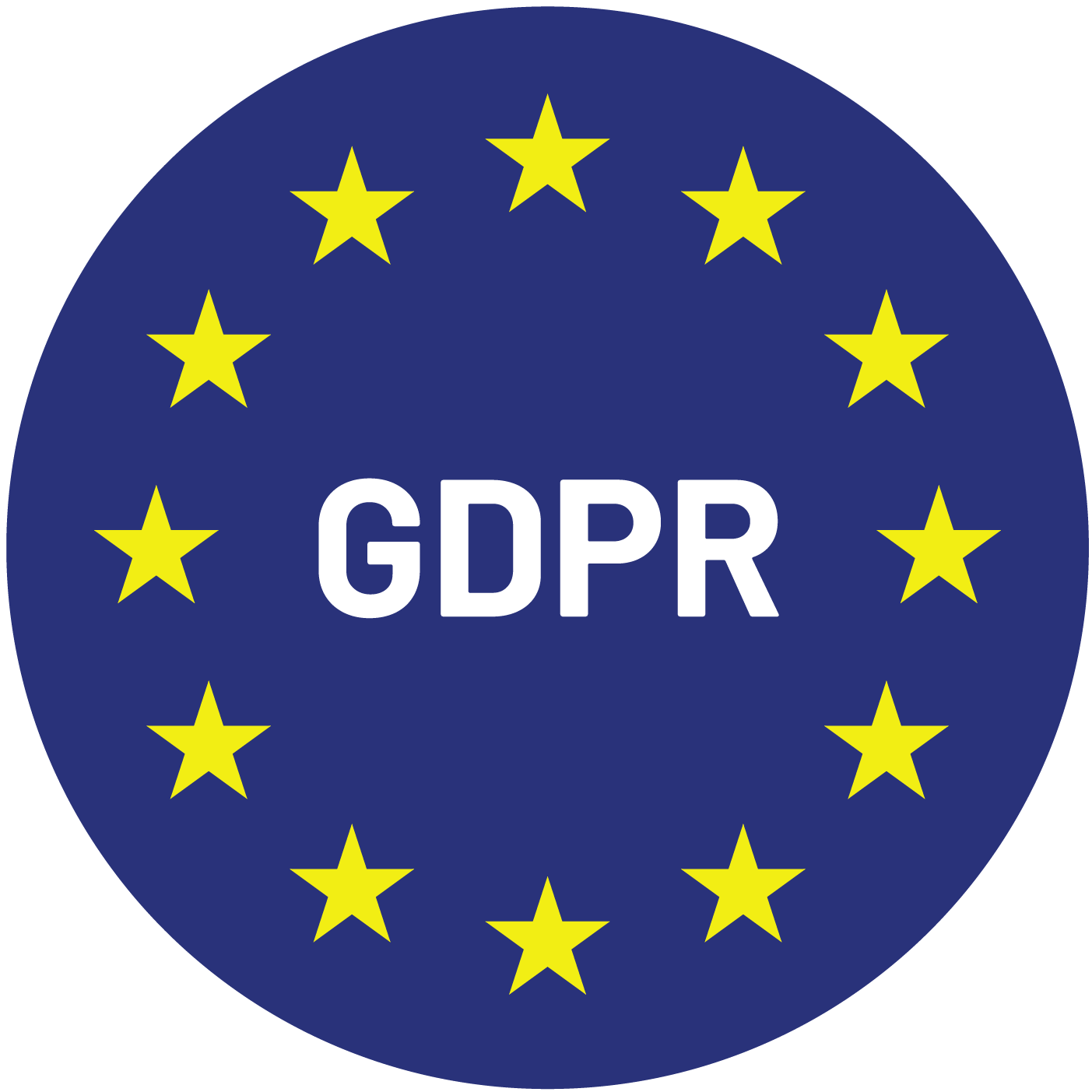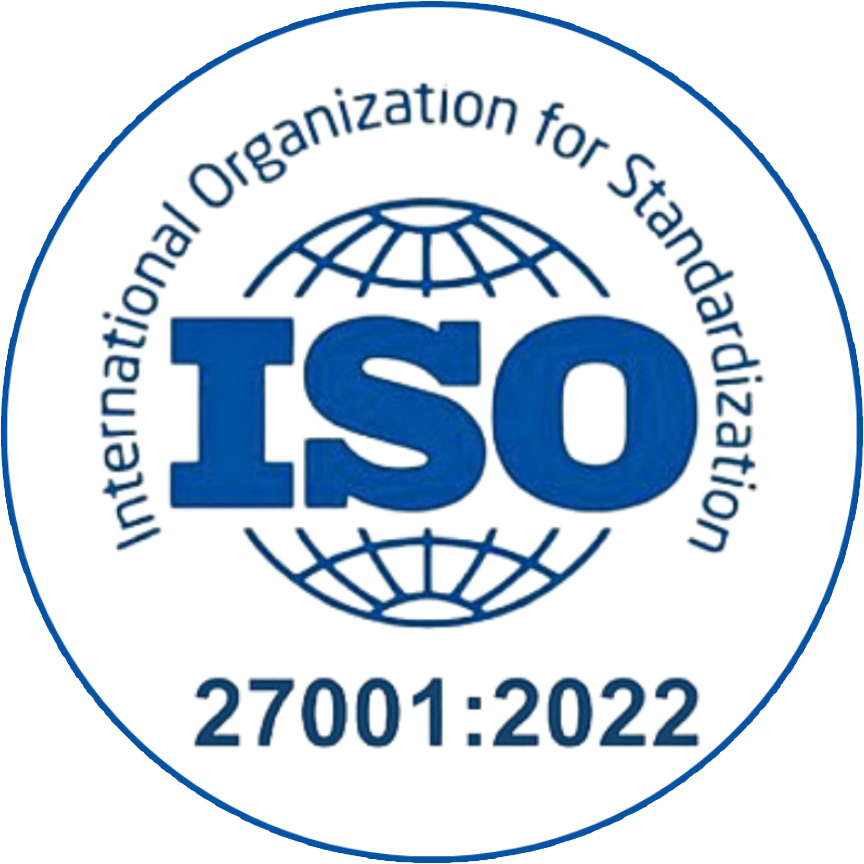Sustainability is now a key priority for businesses of all sizes. It affects both large corporations and SMEs. As climate change intensifies, governments are increasing regulations, particularly on greenhouse gas emissions. For instance, California has introduced new climate laws like Senate Bills SB 253, SB 261, and SB 219. These laws require companies to disclose their carbon emissions, especially Scope 3 emissions.
Many focus on big players, but these laws will also affect smaller companies. SMEs may not be the main targets, but they are deeply connected through their roles in supply chains.
This blog will discuss how these smaller businesses will be impacted by the new rules. We will also explore how they can prepare for the increasing demand for transparency in emissions reporting.
What Are These Climate Laws in Discussion?
Let’s break down the key bills and their goals. First, we have SB 253, or the “Climate Corporate Disclosure Act.” This bill mandates large companies in California to disclose their Scope 1, Scope 2, and Scope 3 greenhouse gas emissions. Scope 3 emissions are indirect and span the value chain. Tracking them is challenging, but it’s crucial to understand a company’s complete environmental impact.
SB 261 takes things a step further. It requires companies under the California Public Utilities Commission (CPUC) to disclose their greenhouse gas emissions. This includes Scope 1, 2, and 3 emissions. The bill also mandates these companies to assess climate risks. Additionally, it requires them to disclose plans for mitigating those risks.
Finally, SB 219 establishes a framework for businesses to evaluate and disclose climate-related risks, focusing on financial risks. It emphasizes how companies must assess and report Scope 3 emissions in their climate risk evaluations.
These laws, effective in 2025, will help major corporations gather data to reduce emissions in their value chains. They will also promote transparency to investors, regulators, and the public. Though these laws target large companies, their impact will ripple through entire supply chains. Smaller businesses that supply goods and services will also be affected.
The Scope 3 Emissions Challenge
One of the biggest challenges these bills tackle is Scope 3 emissions. Unlike Scope 1 emissions, which come from a company’s own operations, Scope 2 emissions are indirect and come from purchased energy. Scope 3 emissions cover a wider range. They include all indirect emissions across the entire value chain. This includes emissions from producing goods and services a company buys, as well as from using and disposing of the products it sells.
For many companies, especially large ones, Scope 3 emissions represent a significant portion of their total carbon footprint. Tracking and disclosing these emissions is challenging. It demands collaboration and transparency across the entire supply chain. Everyone, from raw material suppliers to logistics partners and customers, plays a role. Smaller companies become crucial in this process.
How Smaller Companies Are Affected
Smaller companies may not meet the revenue thresholds that would require them to disclose their own emissions directly under SB 253, SB 261, or SB 219. However, as key suppliers in the value chains of larger organizations, they will inevitably be impacted by these laws. Here’s how:
1. Increased Pressure from Larger Clients
As large corporations begin reporting their Scope 3 emissions, they’ll need reliable data from their suppliers. This means smaller companies will be asked—or even required—to provide details on their own emissions, including those in their supply chains.
Even though smaller businesses may not fall under the same disclosure laws, their larger clients will still expect detailed environmental data. If a supplier refuses or fails to provide this, they could lose business or face stricter, more expensive contract terms. The pressure to comply is real, and the consequences for non-compliance could be significant.
2. New Supplier Expectations and Audits
Under SB 253 and SB 261, larger companies must now disclose their Scope 3 emissions. Consequently, they will likely raise expectations for suppliers. Smaller companies will soon notice that clients expect them to have sustainability programs in place. These programs may involve tracking emissions, reducing their footprint, and possibly conducting external environmental audits.
Increasingly, audits will form part of the procurement process. Larger companies might require smaller suppliers to prove environmental performance, pushing smaller companies to invest in new systems. They’ll need to track emissions, conduct audits, and report findings to meet their larger clients’ standards.
3. Increased Costs and Operational Adjustments
Smaller companies must measure and report emissions accurately to remain competitive in larger corporations’ supply chains. Many will need new software, tools, or third-party partnerships to gather accurate data.
Tracking Scope 3 emissions is complex. It involves understanding emissions across each supply chain activity—spanning raw materials, energy, and logistics. To manage this, smaller companies may need advanced data collection tools, sustainability experts, or start regular reporting.
These changes will have costs. SMEs without large budgets or resources may face unexpected expenses to meet complex emissions tracking needs. Investing may be essential to remain competitive.
4. The Risk of Becoming Less Competitive
For smaller companies, failing to adapt to the demand for environmental transparency can lead to missed business opportunities. If they don’t meet larger clients’ emissions disclosure expectations, they risk exclusion from the supply chain. In their place, more sustainability-focused competitors may step in.
This shift will especially impact SMEs with limited resources or expertise to make necessary changes. For instance, smaller suppliers in energy-intensive industries, particularly those using carbon-heavy materials, will struggle more with new reporting requirements.
5. Access to Funding and Investments
As larger corporations shift their focus to sustainability in supply chains, small businesses may face tougher challenges securing financing. Investors now prioritize companies committed to reducing emissions, and those with poor environmental records could struggle to secure funding.
Looking ahead, SMEs that don’t take meaningful steps toward reducing carbon emissions and improving transparency may face higher costs. On the flip side, companies that embrace sustainability early can build a positive reputation, which could open doors to better financing opportunities. By acting now, smaller businesses can position themselves for success in an increasingly eco-conscious market.
Preparing for the Impact
While the transition to a low-carbon economy may seem daunting, there are several steps smaller companies can take to prepare for the impact of SB 253, SB 261, and SB 219:
1. Start Tracking Emissions Now
Even if not legally required, smaller companies should begin tracking their own emissions, especially Scope 3 emissions. This could involve working with suppliers to gather emissions data or using third-party carbon management tools. By doing this now, companies can get ahead of the curve and be prepared for requests from larger clients.
2. Engage with Suppliers and Clients
Small businesses should communicate with their clients to understand their expectations regarding emissions disclosure and reporting. Understanding what larger corporations require in terms of data will help SMEs to focus their efforts on the most critical areas. This will also allow SMEs to create a collaborative approach with their clients to achieve shared sustainability goals.
3. Invest in Sustainability Technology and Expertise
For SMEs, adopting technologies that make emissions tracking and reporting easier can be a real game-changer. Tools like carbon accounting software and data analytics platforms can automate the process, saving time and effort. With these tools, smaller companies can collect and report emissions data more accurately.
Moreover, seeking expert advice in sustainability and emissions management can make a big difference. It helps companies create effective strategies to reduce their carbon footprint and improve their environmental performance. By taking these steps, SMEs can stay ahead of the curve and contribute to a more sustainable future.
4. Promote Sustainability as a Competitive Advantage
As demand for sustainability grows, SMEs that take action and share their efforts will stand out. By tracking and reducing emissions, smaller companies can set themselves apart from competitors. This not only helps them differentiate in the market but also attracts environmentally-conscious customers and clients. It’s a great opportunity for businesses to showcase their commitment to sustainability.
Conclusion
California’s SB 253, SB 261, and SB 219 are reshaping the business landscape in profound ways. Large corporations are getting much attention, but these laws also significantly impact smaller companies, especially those in larger supply chains. Smaller companies now face rising demands for emissions data, increased costs, and necessary operational changes. To remain competitive, they must act swiftly.
However, this shift presents an opportunity. By embracing these changes, SMEs can not only meet client demands but also establish themselves as sustainability leaders. Thriving in this new landscape requires proactive preparation, transparency, and genuine commitment to reducing emissions and improving environmental performance.
Sprih understands the sustainability challenges businesses face. We can help you navigate these regulations and equip your company with the tools to lead in sustainability. Let’s take the next step together—book a demo now!
FAQs
What are California’s climate laws, and how do they affect businesses?
California’s climate laws—SB 253, SB 261, and SB 219—mandate large companies to disclose their greenhouse gas emissions, including Scope 3 emissions from their supply chains. These laws indirectly impact small and medium-sized enterprises (SMEs) by requiring them to provide emissions data to larger clients.
Why are Scope 3 emissions significant for small businesses?
Scope 3 emissions encompass indirect emissions throughout a company’s value chain, such as those from suppliers and product usage. As large corporations report these emissions, they will seek accurate data from SMEs, making it essential for small businesses to track and disclose their own emissions.
Are small businesses legally required to comply with California’s climate laws?
While the laws primarily target large companies, SMEs are indirectly affected. Large clients may require their suppliers to provide emissions data to fulfill their own reporting obligations, effectively extending compliance expectations to smaller businesses.
How can small businesses prepare for increased emissions reporting demands?
SMEs can start by assessing their current emissions, implementing tracking systems, and engaging with clients to understand reporting requirements. Proactively managing emissions data can position small businesses as valuable partners in sustainable supply chains.
What are the risks for small businesses that ignore these climate laws?
Failure to provide emissions data may lead to exclusion from supply chains as larger companies seek compliant partners. This could result in lost business opportunities and reduced competitiveness for SMEs.
